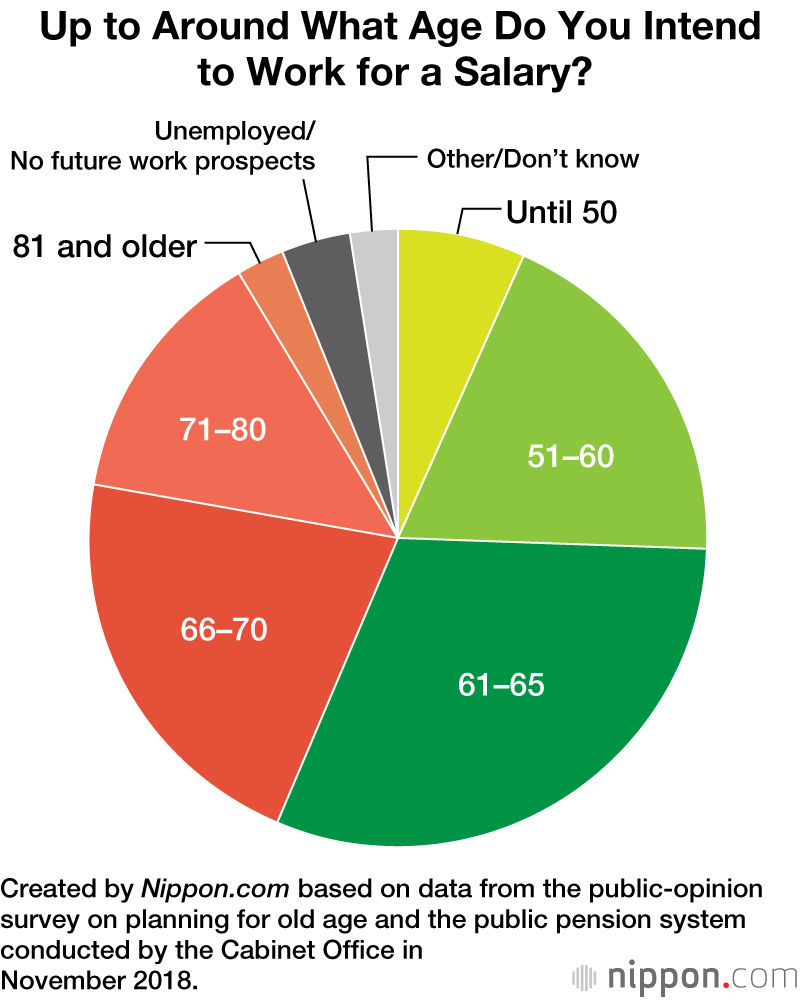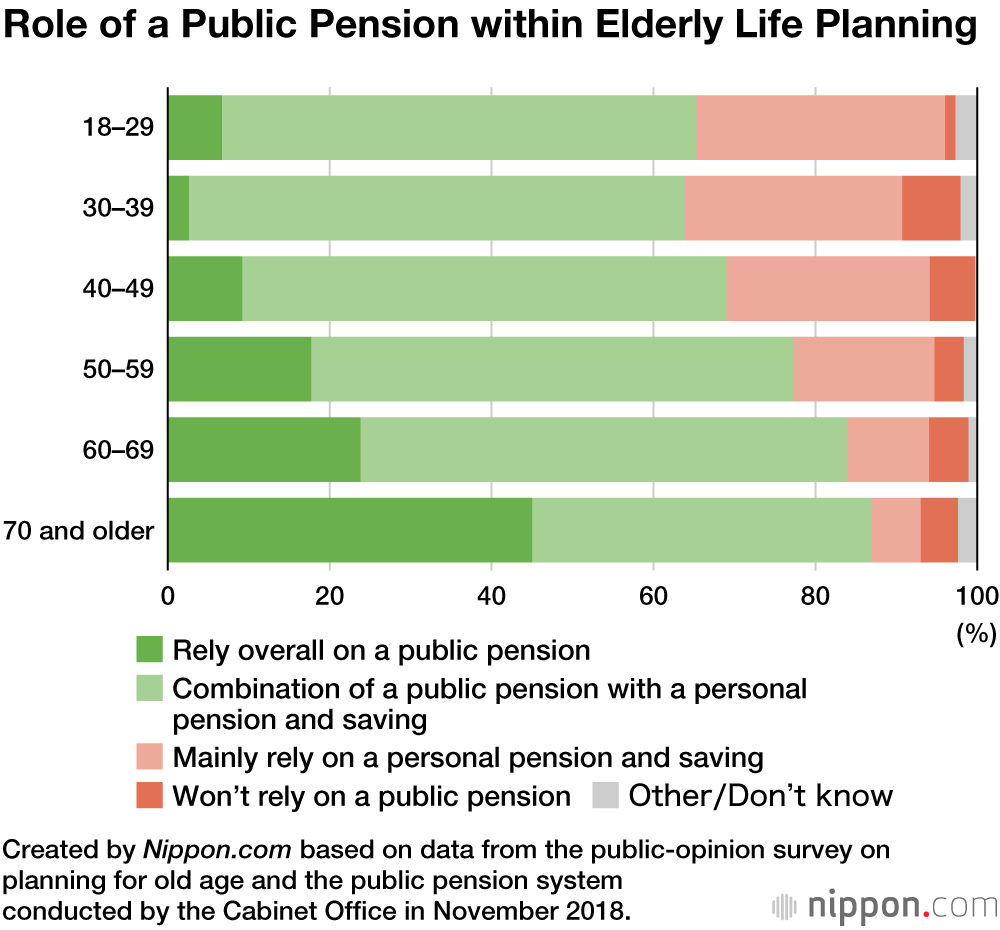
Putting Retirement on Hold: More than a Third of Japanese Plan to Keep Working After 65
Society Work- English
- 日本語
- 简体字
- 繁體字
- Français
- Español
- العربية
- Русский
A public-opinion survey on planning for old age and the public pension system found that 37.6% of respondents intend to work for a salary even after 65 or are already doing so. Given the expanding average lifespan in Japan, combined with shrinking pension fund resources, the dream of an easy-going retirement may remain just a dream for many.
When asked their reason for wanting to work beyond the age of 65, the most common reason, at 28.9%, was the desire to be financially comfortable, followed at 24.9% by those who said that they would not be able to make ends meet without continuing to work.
The most common reasons cited by those who only wanted to work, or had worked, until 65, was that it was the retirement age (29.2%) and that it would be difficult mentally or physically to continue working beyond it (29.0%).
Two-thirds (67.8%) of respondents said that they had thought about life planning for their elderly years. While 45% of those 70 or older responded that they relied overall on a public pension, the younger the respondent, the more emphasis he or she placed on a personal pension or saving.
(Translated from Japanese. Banner photo © Pixta.)

